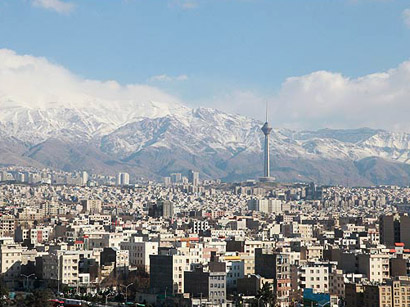Baku, Azerbaijan, Feb. 7
By Azer Ahmadbayli – Trend:
The Americans seem to have realized that it is impossible either to exterminate the Taliban movement or to cripple it for long, so they finally decided to make a deal with the movement.
However, the fact that the US may come to an agreement with Taliban - may turn to be bad news for Iran.
A few days ago, the enemy of Iran – the United States, and Iranian malevolent – the Taliban, who fought for many years for control over the territory of Afghanistan, reached a preliminary agreement on a ceasefire, reconciliation and withdrawal of American troops from the country.
The United States, with its 14,000-strong military contingent and especially Air Force bases in Afghanistan, poses a serious threat to Iran from its eastern border.
It is quite understandable that Iran gets nervous when seeing Americans close to its borders. Therefore, the ousting of the US from Afghanistan has always been on the Iranian agenda and in this respect the interests of Iran and the Taliban coincide. Throughout the relationship between Iran and the Taliban on the problem of common enemy, both sides have demonstrated a pragmatic approach useful for their own interests.
But, since the Americans are in no hurry to leave Afghanistan, it was important for Iran to at least maintain a high degree of tension between the US troops and the Taliban.
To this end, Iran, as many sources say, encapsulatedly supplied the Taliban with weapons and money when it was necessary to maintain the status quo of the existing chaos, or if you prefer, a balance of forces in Afghanistan.
In turn, despite the non-recognition of Iran as a truly Islamic state and treating with contempt for the Iranian "Shiite heretics", the Taliban, nevertheless, did not shun receiving Iranian assistance.
In general, however, relations between Iran and the Taliban today are more hostile than constructive. Both sides have bills for each other to be paid.
Despite the fact that, as many experts, who are well aware of the situation in Afghanistan, say, the withdrawal of US troops, if it takes place, is likely to last for several years, it would seem that this is a good news for Tehran.
However, insuperability of religious antagonism between the Shiite theocracy of Iran and the Sunni fundamentalism of the Taliban still prevails over unofficial tactical ties between the parties, and by organizing a couple of dirty provocations, it won’t be hard to start the sectarian war.
The agreement concluded in Doha also envisages that Taliban will suppress activities of the Islamic State troops against the United States and its allies. But not against its foes.
But if, despite all the unpredictability and outright cruelty of the Taliban, Iran hypothetically can still find a common language with them, then it will have to wage a war to the death with the IS jihadists, if attacked. Syria and Iraq, anyone?
In January, Iranian Tasnim news agency reported that the United States organized the escape of forty IS leaders from the Taliban prison in North-West Afghanistan.
In late January, Deputy Minister of internal Affairs of Russia Igor Zubov said that unknown helicopters are moving IS militants en masse to the Afghan-Tajik border.
Earlier, last autumn, Russian Security Council Secretary Nikolai Patrushev warned that the "Islamic state" could repeat the Syrian scenario in Afghanistan.
And on Tuesday, major-general Yahya Rahim Safavi, a top military adviser to the Leader of the Islamic Revolution Ayatollah Ali Khamenei, said that Iran has “precise information” that the US is transferring IS militants to Afghanistan, Iranian media outlets reported.
“With the plots of Americans, Zionists and some Arab states, more than 100,000 ISIS insurgents invaded the Syrian and Iraqi nations and they intended to come for Iran after Syria and Iraq to claim caliphate in Khorasan, they had even determined an Amir for it. It was US, Israel and UK that established ISIS’ intelligence services. Now we have accurate information showing that US transfers ISIS’ terrorists to Afghanistan,” General Safavi said.
Accumulation of the IS fighters in the neighboring country along with the financial support by Saudi billions can become a destructive factor for Iran's security. Iran should be on alert: the tactics used by Iranian proxies in the Middle East can be specularly applied against it from Afghanistan.
So, what is better for Tehran – to coexist with the US troops deployed in Afghanistan or, probably, to stay face-to-face with IS (and maybe with Taliban) fighters – is a big question.






